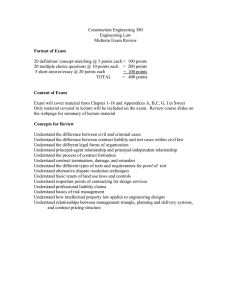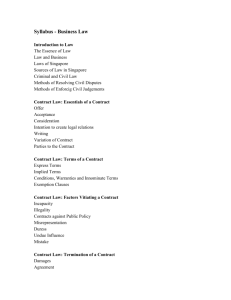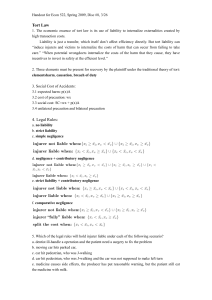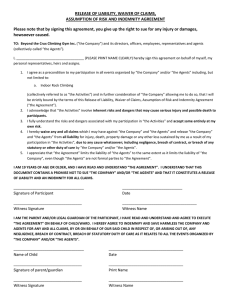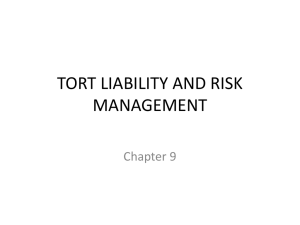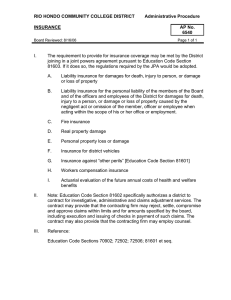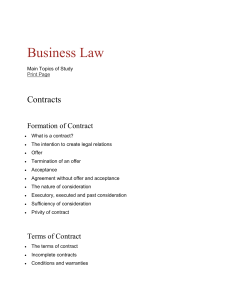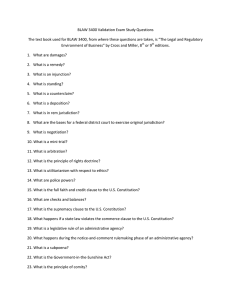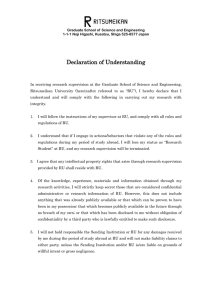Tort Law & Insurance: Key Concepts and Coverage
advertisement
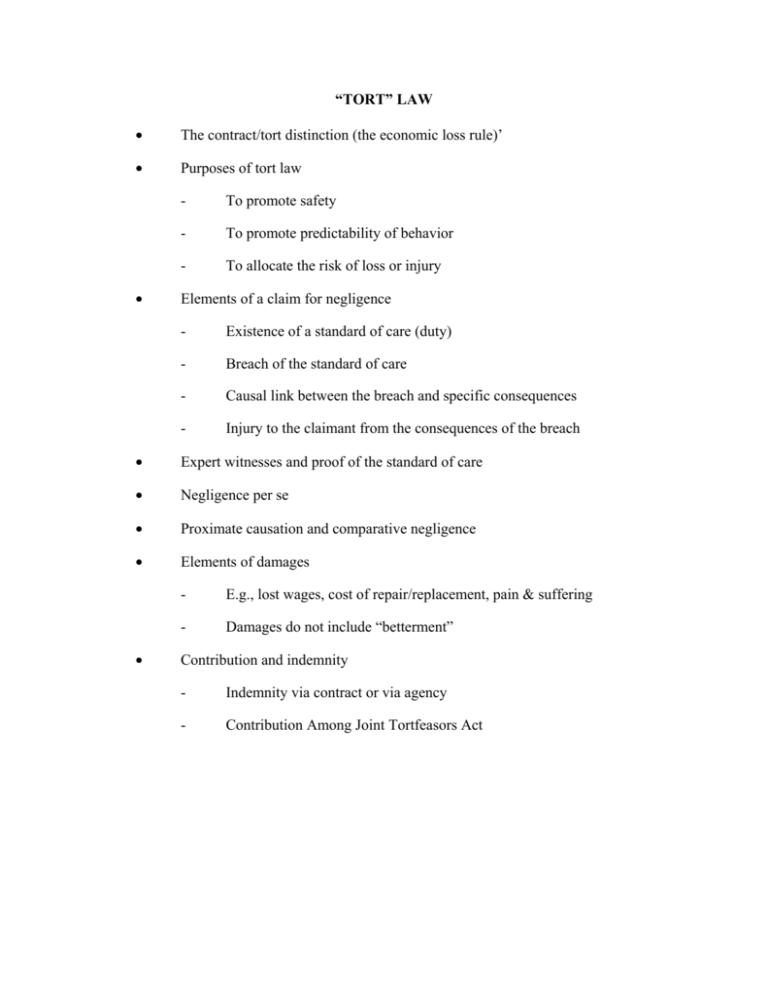
“TORT” LAW • The contract/tort distinction (the economic loss rule)’ • Purposes of tort law • - To promote safety - To promote predictability of behavior - To allocate the risk of loss or injury Elements of a claim for negligence - Existence of a standard of care (duty) - Breach of the standard of care - Causal link between the breach and specific consequences - Injury to the claimant from the consequences of the breach • Expert witnesses and proof of the standard of care • Negligence per se • Proximate causation and comparative negligence • Elements of damages • - E.g., lost wages, cost of repair/replacement, pain & suffering - Damages do not include “betterment” Contribution and indemnity - Indemnity via contract or via agency - Contribution Among Joint Tortfeasors Act INSURANCE • • Professional liability (errors & omissions) insurance - Coverage limit - Deductible - Declining balance - Retroactive date - Premium - “Claims made” policy and “tail” policies - Practice policies versus project policies - Reporting of claims Commercial general liability insurance - Minimal value for architects - Primary insurance for contractors - Being named as an additional insured party • Automobile liability insurance • Builder’s risk insurance • • CH2\8524338.1 - Covers work-in-place and materials stored on site - No-fault property policy, not a liability policy - May be purchased by general contractor or by owner - Subrogation and its waiver Worker’s compensation insurance - Coverage for claims by one’s own employees - Strict liability, but exclusive remedy Certificates of insurance
